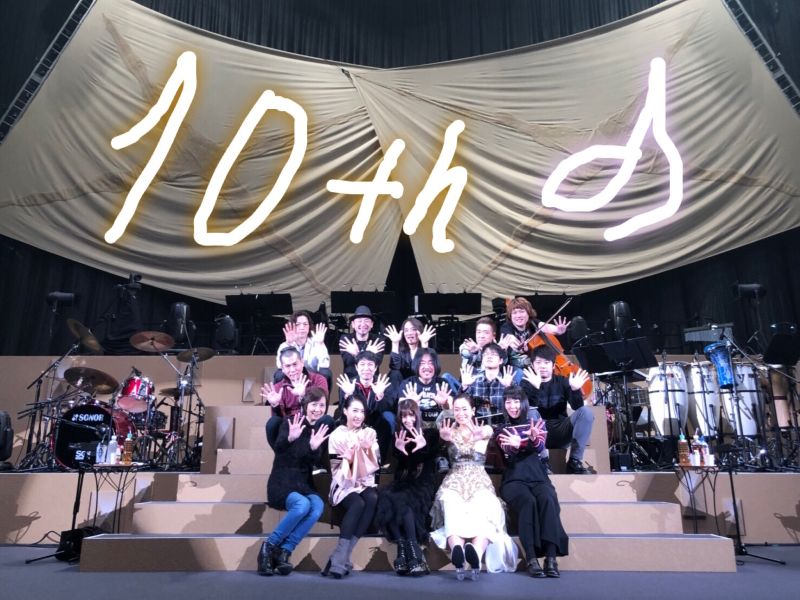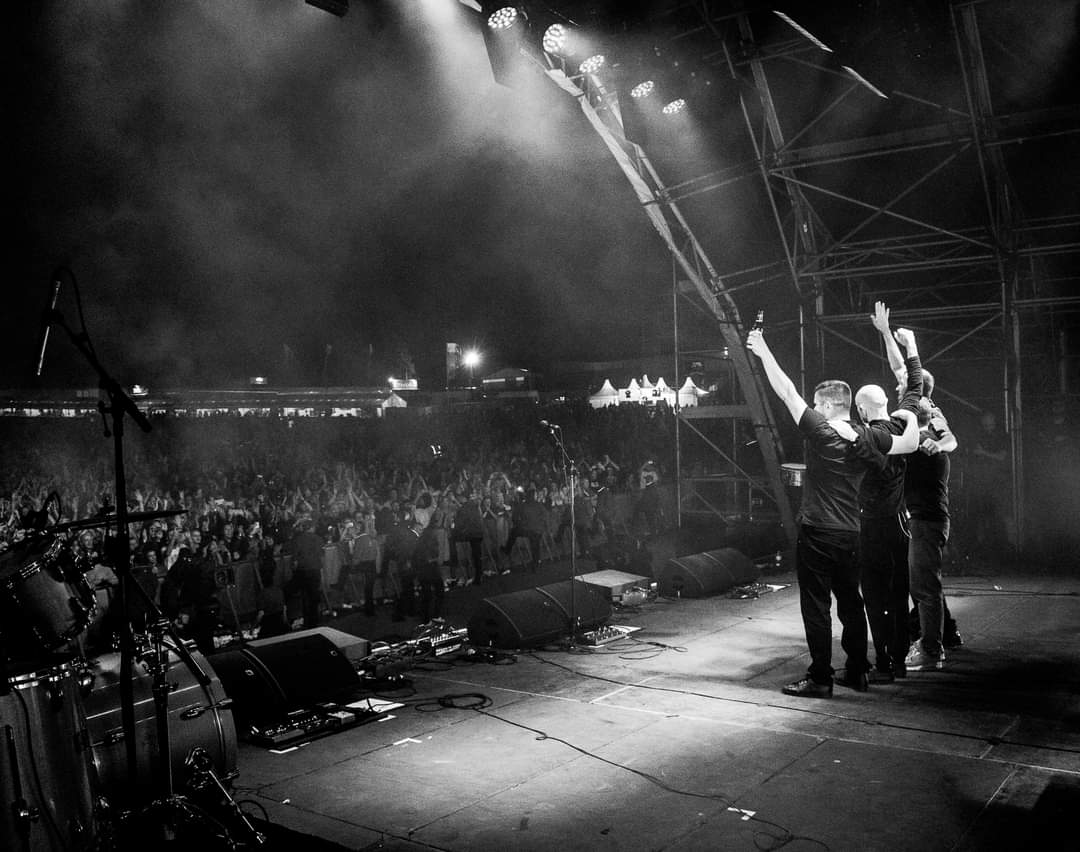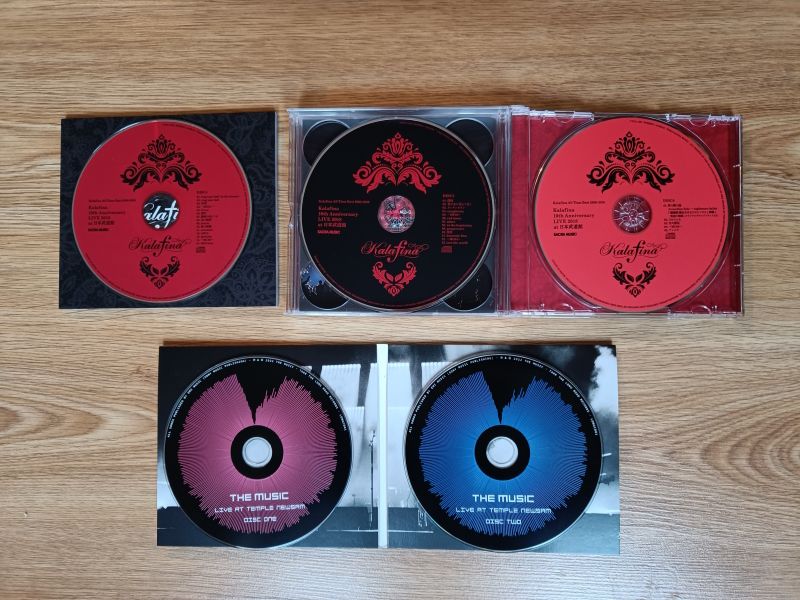Thoughts on the Kalafina 15th anniversary, The Music and band longevity
On January 23rd 2023, Kalafina’s debut single, Oblivious, turned fifteen years old. It was also five years since their tenth anniversary concert at Tokyo’s Nippon Budokan arena, which made me 1. feel old and 2. wonder where all that time went. Two of them still join their old bandmates on stage from time to time under the umbrella of the FictionJunction project, but the old name is pretty much completely in the past, and it took quite a while for me to process how I felt about that.

Looking back, it wasn’t the disbandment itself that upset me but the specific circumstances that led to the situation being so messy and acrimonious. We probably won’t find out the full story, but it seemed to be the result of a disagreement between the producer/songwriter Yuki Kajiura and her agency’s management, with the knock-on effect of the band being forced into indefinite inactivity. As far as anyone knows, the members themselves decided to go their separate ways because of this rather than internal tensions or arguments.
I daresay that if there had been a more amicable contractual agreement between the agency and the producer and/or active members, the door might still be open for them to work together later on, and fans would have felt better about it if the details had been communicated better. It’s a shame, because it left everyone feeling like they were robbed of future creative opportunities to take the band further.
Their sound came from an artistic “chemistry” that would be nigh-on impossible to replicate in any other way, but it wasn’t until I was scrolling through some old interviews that I realised that the converse is also true. The distinctive three-way harmonised vocals are pretty unique in the music industry, but I found a comment from Yuki in an interview in 2011 (included in the Kalafina Record book, for those curious; here is a full translation) to be very telling and insightful.
She observed that, although their skills complimented each other, this arrangement wasn’t necessarily helping them grow as individual performers. As each singer brought her personal strengths into the studio, they were compensating for each other’s weaknesses. She also believed that they were aware of this, and acknowledged that it’s a difficult dilemma for artists to overcome.
That discussion, summed up by “a sense of accomplishment and progress are different things,” left quite an impression on me. Even before the trajectory of the band had reached its halfway point, the possibility of them working separately in the future was not just seen as a possibility but as a necessity for them to reach their full potential. It needed to happen; not in the way that it eventually did, but sooner or later it needed to happen.
Completely separately: last summer, over a decade after their final live concert, UK indie band The Music performed a pair of reunion live shows at the Glasgow Barrowlands and at Temple Newsam park in their home city of Leeds.

Having also listened to this band for many years, it was great to see them play their old songs again one last time, but many fans were asking about whether further tours or even a fourth album were on the way.
It’s understandable to ask these questions, especially since the mutual friendship and respect was still very much there, and they sounded better than they’d ever done. Even so, there’s a big difference between arranging a couple of live shows and a full tour, and indeed a whole album of new material. I think it’s difficult for us as listeners to understand what the day-to-day details of being a full-time music artist involves. The end results – a band on stage, or an album on a record store shelf – don’t show the time and effort that went into creating them. It’s also a lot to ask of someone to change the trajectory of their career.
Perhaps it’s because I’m in the same age bracket as Rob, Adam, Stu and Phil – and Wakana, Keiko and Hikaru as well – that I feel this so keenly. There are some things that you could do in your teens and twenties that just can’t, or shouldn’t, do in your thirties or forties. Our physical and mental health and wellbeing, our priorities and responsibilities all change over time, so it’s difficult to go back and re-start an earlier phase of your life even if you wanted to. Furthermore: when your identity as a professional is so closely associated with one specific group of other people for an extended period of time, isn’t it reasonable to want to do your own thing and express yourself on your own terms?
Following the success of The Music’s reunion shows, Adam rediscovered his enthusiasm for songwriting and started work on a solo record. At the time of writing, Rob is also considering recording some of his own songs sometime in the next few months. I can’t help but wonder what would happen if they joined their former bandmates in the studio again but I’m also reminded of that other songwriter I admire, who was thousands of miles away talking to an interviewer about HER band…coincidentally around the same time that The Music toured for the last time: “a sense of accomplishment and progress are different things.”
Creating something on your own brings about very different results in comparison to collaborating with other people. When you’ve achieved a goal – whether it’s getting into the charts or playing to a joyous crowd in your home town – you’ve done it. Nobody can take that accomplishment away from you. Nor does anyone have the right to tell you to repeat past works over and over when you have new things to say. And here’s the thing: those albums on fans’ shelves are still there. After seeing two of my favourite bands play their last major live shows to appreciative crowds, I was also able to buy official recordings to keep at home. Both events felt celebratory yet bittersweet, but at the same time I wouldn’t have forgiven myself if I had missed out on being there.

In clips of recent FictionJunction shows, it feels odd to me that although Keiko is on stage with them, Hikaru is only an occasional guest vocalist and Wakana doesn’t appear at all. That’s not to say that I don’t enjoy their solo careers: despite the pandemic getting in the way, they are each building a discography on their respective CVs. My only concern is that those external issues that brought “Kalafina” as a band to an end are dictating when or if they should work together again, rather than it being decided by themselves or the natural courses of their development as artists.
I suppose it’s understandable for fans to dwell on the missed opportunities and the “what ifs” when we could – and should? – be looking ahead to what’s happening now. The experience of one of your favourite artists ceasing their activities is always difficult, after all. They’re tightly woven into our own experiences, forming part of the soundtrack to our lives, marking milestones, bringing us in contact with new people and starting friendships that can stay with us for years. And sometimes, they change your entire perspective for the better. Art really can be such a powerful thing.
